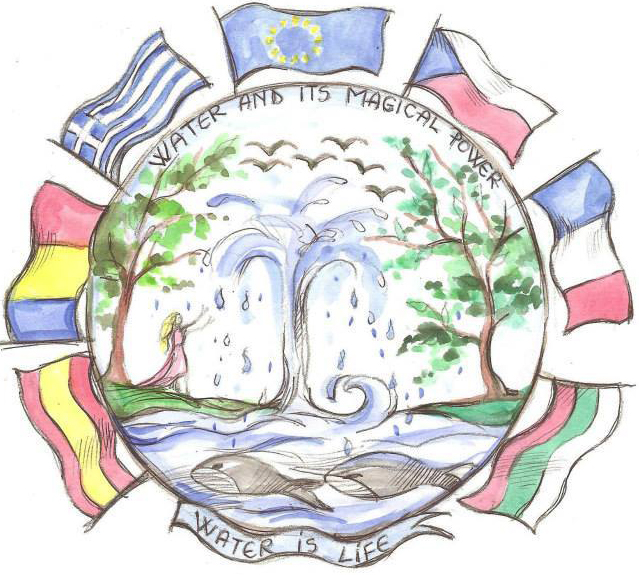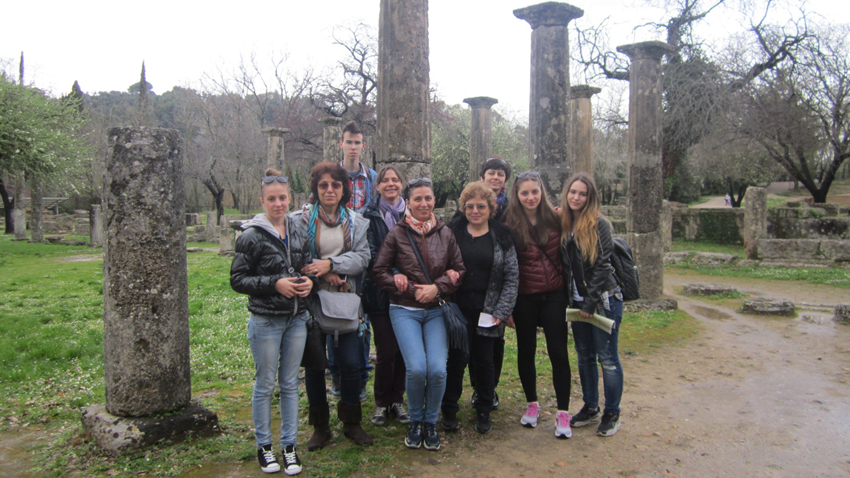Through music and dance, painting, laboratory experiments and Internet surveys, being in direct contact with cultural heritage and local traditions, students from six European countries have been rediscovering "Water and its Magical Power." This happens in the framework of a project funded by the new "Erasmus+” program of the EU aimed at education, training, youth and sport. It started in 2014 and would end in 2016. Partners are schools in Spain, France, Czech Republic, Greece, Romania and Bulgaria. This country is represented by students and teachers from Acad. Mihail Arnaudov School in Sofia. Geography teacher Petya Mintcheva told us more about the opportunities provided by the new European program and the specific project:
 "This is a very good program that includes both formal and informal education for children. Teachers involved in the project receive an opportunity to exchange good practices. We are all living in Europe, but our educational systems are different. We have discovered a lot of interesting ideas that could be applied in Bulgaria. Another important thing is language training as everything is done in English. This way teachers and students develop their language and communication skills.”
"This is a very good program that includes both formal and informal education for children. Teachers involved in the project receive an opportunity to exchange good practices. We are all living in Europe, but our educational systems are different. We have discovered a lot of interesting ideas that could be applied in Bulgaria. Another important thing is language training as everything is done in English. This way teachers and students develop their language and communication skills.”
Bulgaria was the first country to welcome participants in the project at the end of last year. The topic of the meeting was "Going back to the source,” inspired by the millennial history of Sofia - one of the oldest European settlements that emerged near hot mineral springs. Sightseeing, meeting lecturers from Bulgaria’s oldest university, numerous workshops, visiting the ancient town of Plovdiv, trying traditional Bulgarian cuisine and others were just part of the great number of experiences, offered by Bulgarian hosts to their guests. "We had a great week in Bulgaria. We went back to France with big smiles and a lot of good memories," French students wrote about their experience. Just a month ago the second meeting took place, this time in the Greek town of Pyrgos, and it was dedicated to art. It is the first time16-year-old Catherine Vassileva takes part in such a project.

"We met a number people with whom we could continue to keep in touch,” she says. “Also I have improved my English, and learned a lot about the places we visited.”
A book in English dedicated to water will be published within the framework of the project as students are its authors.
"There is also a site that provides information about all events: different presentations, concerts, flash mobs, etc.,” Petya Mintcheva says. “Furthermore everything becomes part of the eTwinning platform. This is a European platform for teachers, which serves as a link between them and allows them to work on joint projects. Everything we do becomes available to all teachers registered in the platform. This way the results we achieve are promoted in an effective way."
English: Alexander Markov
Photos_ courtesy to Petya MintchevaEU Ambassador to Skopje launches construction of new border crossing The construction of the EU-funded border crossing Markova Noga – Lemos between North Macedonia and Greece has begun. The project was presented in the Greek municipality of..
The most significant step towards Bulgaria's membership in the eurozone has been made – this country has received official confirmation that it has fulfilled all the necessary criteria in the convergence reports of the European..
The 19th International Competition for Contemporary Lutherie begins in Kazanlak today. Running until 7 June, the forum aims to promote the traditions and crafts of musical instrument making, according to the Bulgarian News Agency BTA. Participants..
The National Ethnographic Museum at the Bulgarian Academy of Sciences presents its new exhibition "Starry Sky – Mythology and Science" , which covers..
On June 16, a Bulgarian scientific expedition that has been in preparation for a decade will set off for Central Asia, writes 24chasa.bg. For two weeks,..
The branch of the "Angel Kanchev" University of Ruse in Razgrad carries out joint scientific projects, participates in various forums..

+359 2 9336 661
